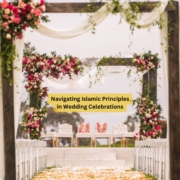Interfaith Dialogue in Islam: Building Bridges of Understanding and Respect
Interfaith dialogue is a cornerstone of Islamic teachings, promoting mutual understanding, respect, and cooperation among different religious communities. Islam, as a religion of peace, encourages its followers to engage in meaningful conversations. With people of other faiths, fostering a culture of tolerance and coexistence. This article explores the concept of interfaith dialogue in Islam, highlighting its significance and the principles that guide such interactions.
The Quranic Foundation for Interfaith Dialogue
The Quran, the holy book of Islam, provides clear guidance on the importance of interfaith dialogue. One of the most cited verses in this context is:
- “O mankind, indeed we have created you from male and female and made you peoples and tribes that you may know one another. Indeed, the most noble of you in the sight of Allah is the most righteous of you. Indeed, Allah is Knowing and Acquainted.” (Quran 49:13)
This verse emphasizes the diversity of humanity as a means for people to learn from each other, encouraging dialogue and understanding across cultural and religious lines. Islam views diversity as a divine blessing, where the differences in beliefs and practices are opportunities for growth and cooperation rather than conflict.
The Prophetic Tradition of Dialogue
The Prophet Muhammad (PBUH) exemplified the practice of interfaith dialogue throughout his life. He engaged with people of various religious backgrounds, including Christians, Jews, and pagans, always advocating for peaceful coexistence and mutual respect. One notable example is the Charter of Medina, a historic document that established a pluralistic society where different religious communities could live in harmony, with mutual rights and responsibilities.
The Prophet’s approach to dialogue was rooted in respect for others’ beliefs and a commitment to justice and fairness. This tradition underscores the Islamic principle that dialogue should be conducted with wisdom, good manners, and a genuine intention to build bridges of understanding.
Objectives of Interfaith Dialogue in Islam
Interfaith dialogue in Islam serves several key objectives, which include:
- Promoting Peace and Tolerance: By engaging in dialogue, Muslims aim to foster a culture of peace and tolerance, reducing misunderstandings and conflicts that often arise from ignorance or prejudice.
- Enhancing Mutual Understanding: Dialogue provides an opportunity for people of different faiths to learn about each other’s beliefs, practices, and values, leading to greater mutual respect and cooperation.
- Addressing Common Challenges: Through dialogue, religious communities can work together to address common social, moral, and environmental challenges, contributing to the betterment of society as a whole.
Principles Guiding Interfaith Dialogue
Islam provides a set of principles that guide interfaith dialogue, ensuring that such interactions are constructive and respectful:
- Respect for All Faiths: Islam teaches that all religions deserve respect and that dialogue should be conducted in a manner. That honors the beliefs and practices of others.
- Sincerity and Honesty: Participants in dialogue should be sincere in their intentions. Engaging in honest and open discussions without hidden agendas.
- Focus on Common Values: While acknowledging differences, dialogue should emphasize shared values and common goals, promoting unity and collaboration.
Conclusion:
In conclusion, interfaith dialogue in Islam is a vital practice that aligns with the core principles of the faith. By engaging in meaningful conversations with people of other religions. Muslims can contribute to a more peaceful and harmonious world. Where diversity is celebrated, and common values are upheld. This approach not only reflects the true spirit of Islam. But also paves the way for a future where different faith communities can coexist with mutual respect and understanding.












It was a pleasure reading this interesting and thorough article. Even while discussing more advanced subjects, your writing style remains plain and simple. This is a great post that I will be using again and again because of how much I learnt from it. You are doing an excellent job.
Your message is quite thoughtful and well-written; I appreciate it. I was able to grasp the ideas and put them to use because of the manner you laid out the material. Your time and energy in providing such specific and applicable examples is much appreciated. For anyone interested in this topic, this is an excellent resource.
What an excellent post! Reading it was really educational for me. You provided extremely well-organized material, and your explanations were both clear and brief. Your time and energy spent on this article’s research and writing are much appreciated. Anyone interested in this topic would surely benefit from this resource.